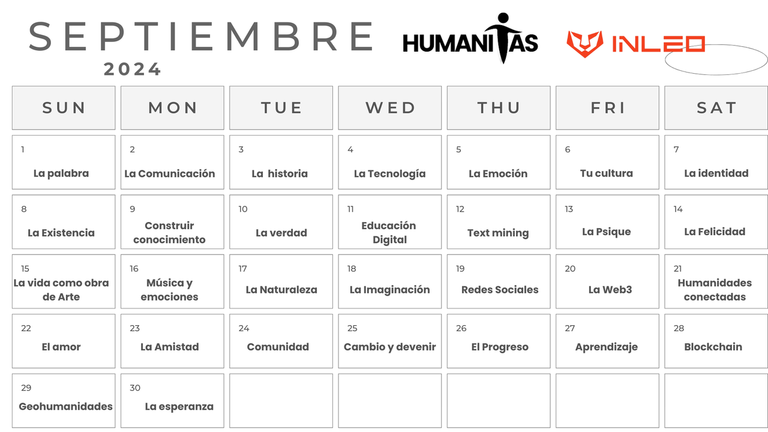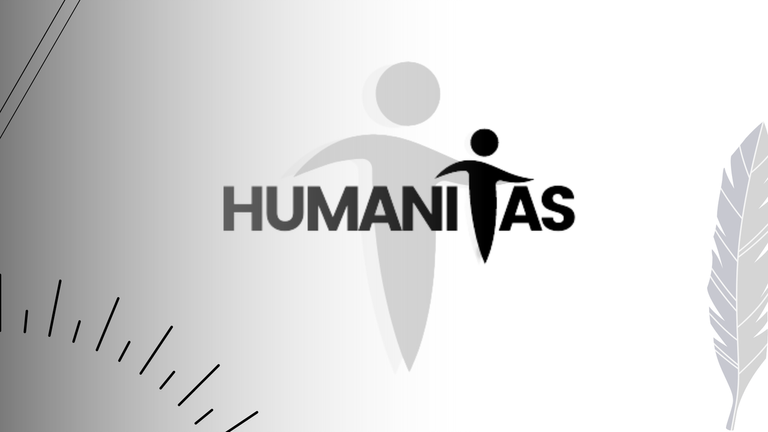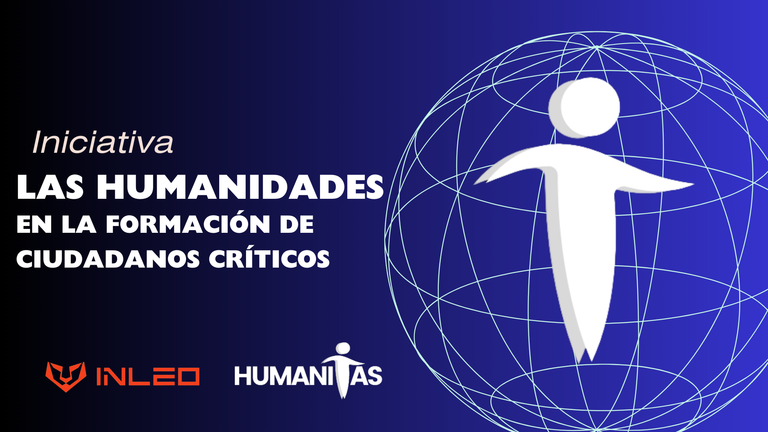La capacidad de pensar críticamente es cada día una herramienta indispensable. La educación en humanidades, con sus disciplinas como la filosofía, la historia, la psicología, la literatura y las lenguas, ofrece un terreno fértil para cultivar esta habilidad fundamental. Pero ¿por qué es lo que hace tan importante la formación en humanidades para formar ciudadanos críticos?
Quienes se dedican a las humanidades saben que la educación en humanidades va más allá de la simple transmisión de conocimientos, ya través de las diferentes disciplinas, se pueden cuestionar las creencias tanto a nivel personal como colectivo, y también podemos valorar diferentes perspectivas.
Al estudiar historia, por ejemplo, se puede aprender sobre el pasado y a reconocer los patrones que se repiten en la sociedad. La filosofía por otro lado enseña a analizar conceptos abstractos y a construir argumentos sólidos. La literatura, permite explorar la condición humana y desarrollar nuestra empatía. Y así cada disciplina brinda un panorama valioso.
Hay una gran importancia en la formación de ciudadanos críticos, ya que un ciudadano crítico es aquel capaz de evaluar información de manera objetiva, identificar falacias y tomar decisiones informadas. Es una persona que de manera activa participa en la vida pública y que defiende sus derechos y los de los demás. La educación en humanidades proporciona las herramientas necesarias para desarrollar estas competencias.
Sin embargo, en las últimas décadas, hemos asistido a una creciente valorización de las disciplinas STEM (ciencia, tecnología, ingeniería y matemáticas) en detrimento de las humanidades. No es que este mal el incremento de las disciplinas científicas, de hecho, es algo genial, pero puede suceder que las ciencias humanas queden relegadas a un segundo plano, lo que puede resultar peligroso. Esta tendencia plantea interrogantes sobre el tipo de sociedad que queremos construir. ¿Es posible tener una sociedad próspera y justa sin ciudadanos capaces de pensar de manera crítica y creativa?
INICIATIVA
La educación en humanidades es un pilar fundamental para la formación de ciudadanos críticos, así que es necesario reflexionar sobre cómo podemos fortalecer esta área en nuestros sistemas educativos. Por esa razón, a continuación, te proponemos algunas preguntas para estimular el debate:
¿Por qué crees que las humanidades han perdido importancia en los últimos años?
¿Cuáles son las principales habilidades que se desarrollan a través del estudio de las humanidades?
¿Cómo puede la educación en humanidades contribuir a resolver los problemas sociales más urgentes de nuestro tiempo?
¿Qué papel juegan las nuevas tecnologías en la enseñanza de las humanidades?
¿Cómo podemos hacer que las humanidades sean más atractivas para los jóvenes?
¿Cuál es la relación entre la educación en humanidades y el mercado laboral?
¿Crees que la educación en humanidades debería ser obligatoria en todos los niveles educativos?
¿Cómo pueden las universidades y los centros de investigación promover la interdisciplinariedad entre las humanidades y otras áreas del conocimiento?
¿Qué papel juegan los medios de comunicación en la formación de ciudadanos críticos?
¿Cómo podemos fomentar una cultura de lectura y debate en nuestra sociedad?
Recuerda:
Puedes crear contenido en Humanitas en cualquier tipo de formato, no importa si lo haces escrito en formato largo, escrito en formato corto, video, podcast o como sea que te guste crear contenido. También recuerda que esta la iniciativa de un tema para cada día de Septiembre en la que puedes participar si lo deseas.

Reglas
• No toleramos el plagio.
• Contenido en cualquier idioma (si no es en español agradecemos añadas la traducción).
• Asegúrate de utilizar buena ortografía.
• Utiliza las etiquetas: #humanitas e #iniciativa
A modo de sugerencia para mejorar la experiencia en la comunidad:
• Comenta otras participaciones.
• Invita a otros a participar en la iniciativa.
• Comparte por Threads
tu participación usando el tag #humanitas
• Comparte tu participación por X usando el tag #humanitas
¿Qué DApps puedes usar?
Realmente puedes usar cualquier aplicación para crear contenido en la comunidad. Cualquier formato es bienvenido, ahora bien, si redactas un artículo te sugerimos utilizar el Frontend de INLEO ya que como comunidad aliada al proyecto podemos postular a curación las publicaciones que suban a la comunidad desde el portal de INLEO y que contamos con una delegación de LEOPOWER para incentivar el contenido compartido en la comunidad desde INLEO. Recuerda que los votos no están asegurados.
También te invitamos a formar parte de nuestro grupo de telegram oficial, ya que estaremos no solo interactuando sino también deseamos escuchar a todos los miembros de nuestra comunidad y juntos poder edificar el mejor entorno de humanidades en la web.

No lo olvides
Buscamos originalidad y creatividad, por lo tanto, bajo ninguna circunstancia admitiremos plagio, queremos promover el pensamiento crítico y el sano debate. En pasadas ocasiones, hemos logrado demostrar que como comunidad podemos abordar temáticas que pueden ser en principio polémicas, álgidas o tender hacia lo controversial sin inconvenientes, de hecho pueden ser abordadas con criterios y armonía, con responsabilidad discursiva, sobre todo empatía y respeto, no hay necesidad de polemizar los puntos de vista, siempre con criterio y disposición de ánimo podemos crear diálogos profundos y reflexivos colaborando en la construcción de conocimientos humanísticos en esta web 3.0

ENGLISH VERSION
INITIATIVE: Humanities in the formation of critical citizens
The ability to think critically is an indispensable tool every day. Humanities education, with its disciplines such as philosophy, history, psychology, literature and languages, offers fertile ground for cultivating this fundamental skill. But why is it that makes humanities education so important in forming critical citizens?
Those involved in the humanities know that humanities education goes beyond the simple transmission of knowledge, and through the different disciplines, we can question beliefs on both a personal and collective level, and we can also value different perspectives.
By studying history, for example, we can learn about the past and recognize patterns that are repeated in society. Philosophy, on the other hand, teaches us to analyze abstract concepts and construct solid arguments. Literature, on the other hand, allows us to explore the human condition and develop our empathy. And so each discipline provides a valuable overview.
There is great importance in the formation of critical citizens, since a critical citizen is one who is able to evaluate information objectively, identify fallacies and make informed decisions. He or she is a person who actively participates in public life and defends his or her rights and those of others. Humanities education provides the tools necessary to develop these competencies.
However, in recent decades, we have witnessed an increasing valorization of STEM disciplines (science, technology, engineering and mathematics) to the detriment of the humanities. It's not that the rise of scientific disciplines is a bad thing - in fact, it's a great thing - but the human sciences may be relegated to the background, which can be dangerous. This trend raises questions about the kind of society we want to build. Is it possible to have a prosperous and just society without citizens capable of thinking critically and creatively?
INITIATIVE
Humanities education is a fundamental pillar for the formation of critical citizens, so it is necessary to reflect on how we can strengthen this area in our educational systems. For that reason, here are some questions to stimulate debate:
Why do you think the humanities have lost importance in recent years?
What are the main skills that are developed through the study of the humanities?
How can humanities education contribute to solving the most pressing social problems of our time?
What role do new technologies play in humanities education?
How can we make the humanities more attractive to young people?
What is the relationship between humanities education and the labor market?
Do you think humanities education should be compulsory at all levels of education?
How can universities and research centers promote interdisciplinarity between the humanities and other areas of knowledge?
What role do the media play in the formation of critical citizens?
How can we foster a culture of reading and debate in our society?
Remember:
You can create content in Humanitas in any type of format, no matter if you do it written in long format, written in short format, video, podcast or however you like to create content. Also remember that there is the initiative of a theme for each day of September in which you can participate if you wish.

Rules
- We do not tolerate plagiarism.
- Content in any language (if it is not in English, please add the translation).
- Be sure to use good spelling.
- Use the tags: #humanitas and #initiative.
As a suggestion to improve the community experience:
- Comment on other participations.
- Invite others to participate in the initiative.
- Share by Threads your participation using the tag #humanitas.
- Share your participation by X using the #humanitas tag.
What DApps can you use?
Actually you can use any application to create content in the community. Any format is welcome, however, if you write an article we suggest you use the INLEO Frontend because as a community allied to the project we can apply to curate the publications that are uploaded to the community from the INLEO portal and we have a delegation of LEOPOWER to encourage content shared in the community from INLEO. Remember that votes are not guaranteed.
We also invite you to join our official telegram group, as we will be not only interacting but also want to listen to all members of our community and together we can build the best humanities environment on the web.

Don't forget
We seek originality and creativity, therefore, under no circumstances will we admit plagiarism, we want to promote critical thinking and healthy debate. In the past, we have been able to demonstrate that as a community we can address issues that may be controversial or tend towards the controversial without problems, in fact they can be addressed with criteria and harmony, with discursive responsibility, especially empathy and respect, there is no need to polemicize the points of view, always with criteria and willingness to mood we can create deep and thoughtful dialogues collaborating in the construction of humanistic knowledge in this web 3.0.
Translated with DeepL.com (free version)

✖ @ComunidadHuman3
📸 IG @HumanitasCommunity
Canal de Telegram oficial
Canal de Discord oficial
Posted Using InLeo Alpha
